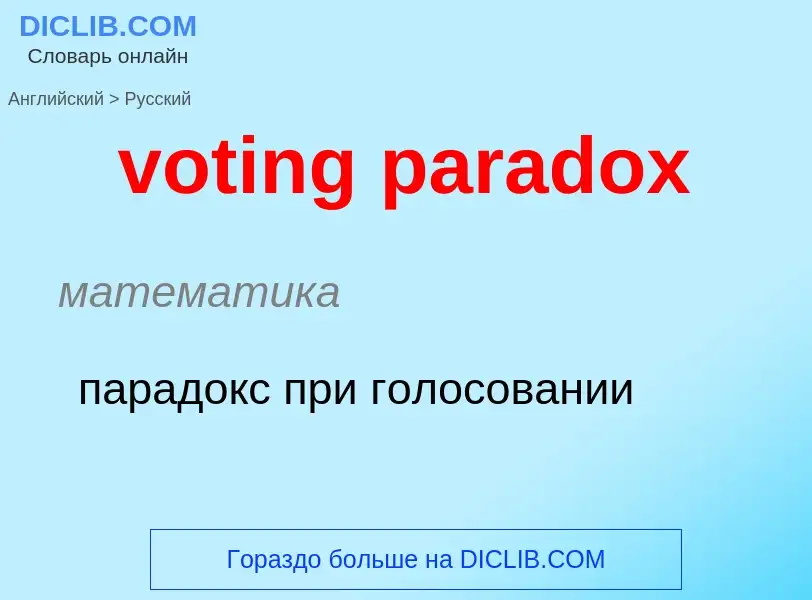Translation and analysis of words by ChatGPT artificial intelligence
On this page you can get a detailed analysis of a word or phrase, produced by the best artificial intelligence technology to date:
- how the word is used
- frequency of use
- it is used more often in oral or written speech
- word translation options
- usage examples (several phrases with translation)
- etymology
voting paradox - translation to russian
математика
парадокс при голосовании
Definition
Wikipedia
The Condorcet paradox (also known as the voting paradox or the paradox of voting) in social choice theory is a situation noted by the Marquis de Condorcet in the late 18th century, in which collective preferences can be cyclic, even if the preferences of individual voters are not cyclic. This is paradoxical, because it means that majority wishes can be in conflict with each other: Suppose majorities prefer, for example, candidate A over B, B over C, and yet C over A. When this occurs, it is because the conflicting majorities are each made up of different groups of individuals.
Thus an expectation that transitivity on the part of all individuals' preferences should result in transitivity of societal preferences is an example of a fallacy of composition.
The paradox was independently discovered by Lewis Carroll and Edward J. Nanson, but its significance was not recognized until popularized by Duncan Black in the 1940s.





